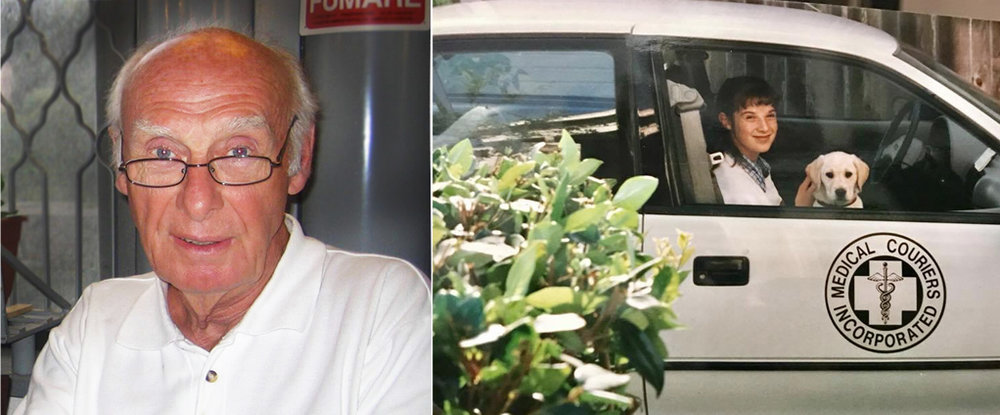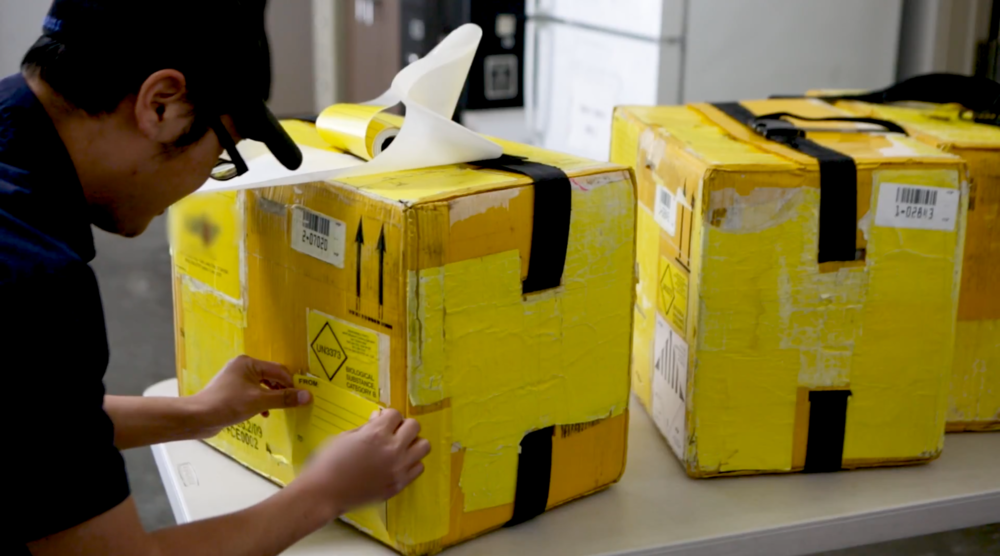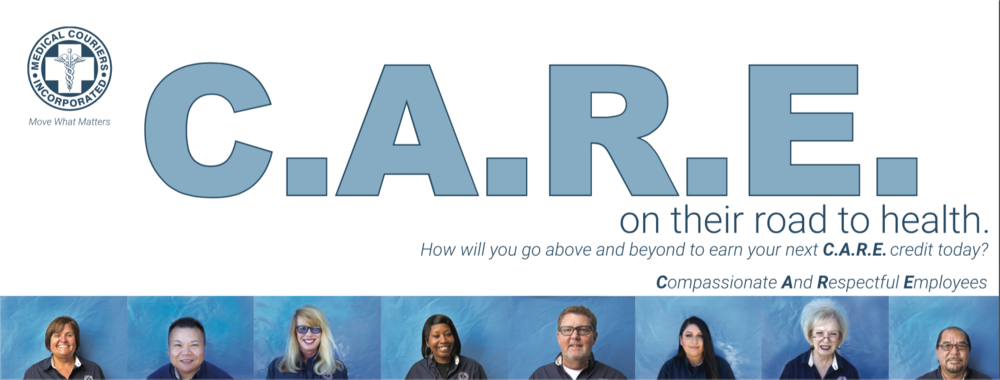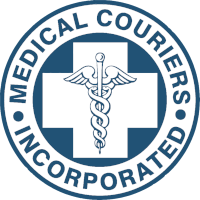In 1969, Frank Reiff saw an opportunity with the invention of the SMAC machine—a machine that automated specimen testing for the medical industry. With one car and one route, he began a medical pick up and delivery service between clinics and hospitals to labs and called his business Medical Couriers. The business grew fast, and soon he had to hire more drivers to manage the load. Fifty years and a fleet of drivers later, training still stands at the core of our commitment to representing our client’s brands in the field.
Quantity and Quality
“At first I did all the work myself,” says Frank Reiff, now retired founder of medical pick up and delivery service Medical Couriers. “We only had one route in 1969.” But with the technological advancements changing the face of medical testing fast, the medical courier work continued to grow and soon Reiff had to hire part time employees from the University of San Francisco. With the counterculture movement at its height in 1969, Reiff decided to be strict on rules of appearance.
 MCI Founder Frank Reiff and granddaughter Kristin Reiff with Rocky in 1993
MCI Founder Frank Reiff and granddaughter Kristin Reiff with Rocky in 1993
“We kept a razor in the cabinet at the office in case anyone came in with a beard. They had to wear a black tie and a red coat with a white shirt. Office personnel would check them before they went out the door. My guess is the tie came off a block away from the office,” Reiff laughs. Now the look is much more casual, but the medical courier training is more rigorous.
Our Drivers are Your Drivers
The uniform says MCI, but we know that our medical pick up and delivery service represents labs, clinics, and hospitals in the field everyday. Before our medical couriers leave the office, we run them through an 8 Point Driver Checklist to make sure they’re going to make a good impression.
Unlike the formal coat and tie of MCI in 1969, today’s uniform consists of an ironed shirt, long pants, and a badge. “We’re not fussy about beards anymore, but clear communication and politeness are required,” says Steven Reiff, son of founder Frank Reiff and current CEO. “Professionalism isn’t just a look, it’s an attitude—it’s what we’ve instilled in our drivers from the very beginning.”
 A driver prepares outbound specimen boxes for transport.
A driver prepares outbound specimen boxes for transport.
50 Years of Training Excellence
Before the Internet and apps, MCI used paper route sheets to keep track of specimens. This required elaborate processes and checks to make sure everything was accounted for at all times. Today medical pick up and delivery service drivers learn how to log specimens using a tracking app and cloud-based technology. MCI drivers also undergo at least 40 hours of training prior to independently picking up patient specimens. Protecting the patient is priority number one, so our training doesn’t stop with procedures and protocols.
 Employee banner in our Sacramento hub. Drivers are awarded CARE credits when they go above and beyond to do their job.
Employee banner in our Sacramento hub. Drivers are awarded CARE credits when they go above and beyond to do their job.
Medical Couriers has set the medical pick up and delivery service industry standard in emotional awareness training by requiring drivers to go through their C.A.R.E. (Compassionate and Respectful Employees) program. CARE uses real life patient stories to connect the drivers to the people behind the specimens, helping to communicate the real-life human consequence of their work.
In the late 1960s MCI drivers were told one by one that their work matters. Today, with a fleet of cars, countless drivers, and nationwide medical pick up and delivery service, we can’t take the chance of that message getting lost. That’s why care is the message behind everything we do—it’s how we represent our client’s brands in the field today and for the next 50 years of service.











